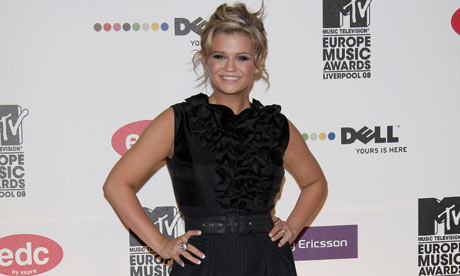
The celebrity autobiography has a knife at its throat. HMV, which owns Waterstone's, has announced it will stock fewer celebrity confessions, partly because of books such as Ant & Dec's Ooh! What a Lovely Pair: Our Story not doing as well as expected over Christmas. And I can only scream, "Noooooooo!"
For those who have never read Jim Davidson's Close to the Edge – "What if I just stay in this toilet for the rest of my life?" – I must explain that the celebrity autobiography is a vital coping mechanism for the celebrity age. If you deny the celebrity its voice, it will grow pale and spectre-thin, and die, because there are only so many covers in Fabulous magazine the human brain can tolerate. And if the public cannot hear the celebrity voice, it will hate the celebrity, because it does not understand it.
I am not speaking of Anne Frank's diaries, or Elie Wiesel's Night, or the new batch of cat biographies, although I do like them. I particularly recommend Dewey: The Small-Town Library Cat Who Touched the World, which is rumoured to be in development in Hollywood. I can respect a person so damaged they want to put themselves in the brain of their pet, and pretend that the pet saved them from some terrible personal catastrophe. I do not have a pet for that very reason.
No, I speak of TV celebrities. I need to hear them; only then can I bear them. Take, for instance Fern: My Story, the memoirs of Fern Britton of This Morning and Soapstar Superstar. "I did a weekend course called An Introduction to Livestock Farming," says Fern. "I'm qualified in pig husbandry." I see an image of Fern hugging a pig, and I forgive her everything.
And then there is Kerry Katona of Atomic Kitten. Kerry used to be the woman in the Iceland adverts, whom I wanted to feed into a meat-grinder. But then I read Too Much, Too Young: My Story of Love, Survival and Celebrity. How does it feel when your Auntie Josie tells the tabloids your secrets? Katona is dependent on her husband, Mark. She writes like a woman down a well, with only her bra for company. "Mark looks after me now," she whispers from her well. Can you read it and not love?
Even Richard Hammond of Top Gear becomes human when you realise he has dedicated his autobiography On The Edge to "everyone who has suffered brain injury in any form". (I hope Jeremy Clarkson thanked him.) On The Edge is Dostoyevsky cut with Fabulous: "It's now 11 months since I sat on a bench in Scotland and wept."
Even Bill Oddie, who I used to think was really a Teletubbie in disguise, emerges as a dark anti-hero from the genre. In the last chapter of One Flew into the Cuckoo's Egg he says, "They is no such thing as 'they'. Who are 'they'? 'They do not exist.'" It is much darker than Follow That Bird. It is redemption.
Why I don't prefer blondes
Some things I don't need to be told, I just know. An academic study has examined the relationship between confidence and aggression in 156 female undergraduates in California, and the results have exploded like shampoo out of a bottle of L'Oréal's You're Not Worth It. (But I Am.)
It concludes that blondes are more aggressive than brunettes and redheads. They are more "war-like", if you want an image of blondes massacring non-blondes and eating their flesh with fennel, because rice is fattening after all. Why? Because they have been always treated better than non-blondes, and so they have grown a sense of entitlement, like an extra foot.
I knew this when I was four. The blonde girls in the class at school sat together, away from the rest of us. We had rat- or tomato-coloured heads. But they lived on an invisible blonde pedestal. They knew they were hot. We knew we were not. They didn't even really belong there. They should have been down the road at the boys' school, getting engaged to rich five-year-olds and smoking scented fags.
Now whenever I see a blonde, I run; it never occurs to me to fight. Not that you really see them – they disappear into happy-and-loved land at 23, never to return. I don't know anything about happy-and-loved land, but I suspect it involves ear-muffs and controlling men. Each woman to her own battlefield, as it says in My Fair Lady. On this one I haven't got a prayer.
Why don't I dye my hair blonde? (The study suggests that dyed blondes inherit the war-like trait.) Because you know what you get when a woman with very dark hair dyes her hair blonde. Myra Hindley.

